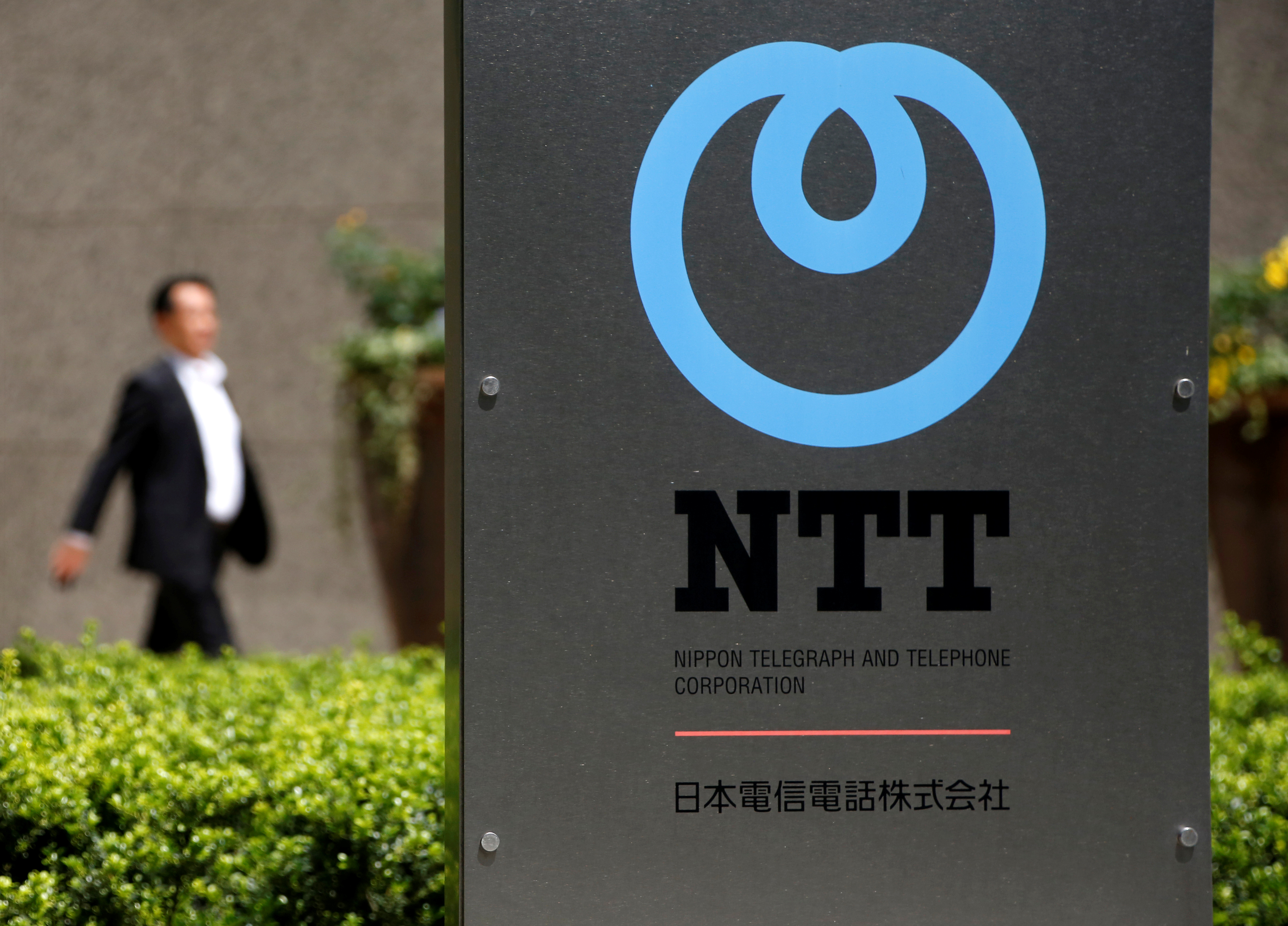Japan’s Nippon Telegraph and Telephone Corp (NTT) <9432.T> said it is looking at taking full control of its wireless carrier business in a deal that could be worth around 4 trillion yen ($38 billion) and pave the way for price cuts in the sector.
The buyout will be discussed at a board meeting on Tuesday, NTT said in a statement following a Nikkei newspaper report on the matter. The value of the 34% of NTT Docomo Inc’s <9437.T> shares not owned by NTT is based on a 30% premium to Monday’s closing price, Reuters calculations showed.
The move comes as Japan’s new prime minister Yoshihide Suga launches a fresh attempt to push the country’s three biggest mobile network providers into cutting fees. The government is NTT’s biggest shareholder, with a 34% stake.
At $38 billion, the deal would be the fifth-largest M&A transaction involving a Japanese company, Refinitiv data showed. It would also be the largest-ever tender offer for a Japanese company, Nikkei reported.
A buyout will have broad implications for the sector, with any fee cuts likely to be followed by NTT Docomo peers KDDI Corp <9433.T> and SoftBank Corp <9434.T>, hitting profit margins.
NTT shares fell as much as 5.8% in early trade. NTT Docomo shares were untraded with a glut of buy orders.
KDDI and SoftBank Corp shares fell around 4%, with SoftBank touching record lows, as the telcos continue their slide which began when the previous prime minister, Shinzo Abe, announced plans to resign on Aug. 28.
NTT Docomo was spun off from Japan’s former state monopoly in 1992 as part of government efforts to drive competition in the sector. It listed in 1998.
“Post acquisition, Docomo will no longer be answerable to shareholders. If the government instructs it to cut prices, it will oblige,” Jefferies analyst Atul Goyal wrote in a client note.
The government wants lower fees to stimulate spending in other parts of the economy, with Chief Cabinet Secretary Katsunobu Kato on Tuesday reiterating calls for “visible progress on lowering mobile phone charges,” in comments to reporters.
Pressure from Suga comes as carriers invest in building fifth-generation services widely seen as critical to ensuring Japan’s competitiveness.
The buyout “is driven more by the potential to develop 5G and IoT services than regulatory pressure,” said analyst Kirk Boodry at Redex Research, referring to the Internet of Things. The industry is seeking “new, less regulated revenue streams,” he said.
Telecoms ministry efforts to enhance competition include backing Rakuten Inc’s <4755.T> entry into the sector this year. The e-commerce firm’s model of low-cost plans could come under strain, however, should broader prices fall.
Price pressure comes as SoftBank Group Corp <9984.T> sells down its stake in its wireless unit, forgoing stable dividend income in favour of a cash injection as it focuses on investing.
NTT Docomo is a popular stock among retail investors meaning its potential exit from the market will likely make a big impact, said analyst Ichiro Kurihara at Tachibana Securities.
A buyout would also mark the end of a prominent “parent-child” listing that are frowned on in other economies but remain common in Japan.
NTT will fund the acquisition through 4 trillion yen in loans from Japan’s three biggest banks and others before turning to longer term loans and debt issuance, Nikkei reported.
The telecoms firm had more than 1 trillion yen in cash and cash equivalents on its balance sheet at June-end.
(Reporting by Makiko Yamazaki and Sam Nussey; Additional reporting by Hiroko Hamada; Editing by Richard Pullin and Christopher Cushing)
























